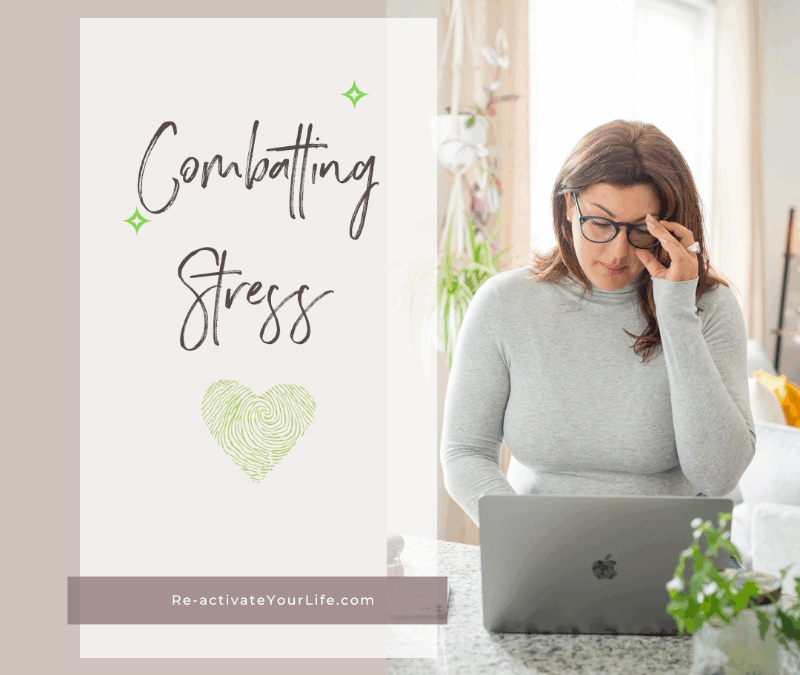Let’s face it; our world has become one big stress ball!
If you look at today’s stores, you will see gadgets created to combat stress of all kinds: stress balls, fidget cubes, and electronic devices to monitor breathing and heart rate. There are coffee mugs and tee shirts with funny sayings about stress like “You stress Meow-t “(insert photo of a kitten) or “Good Morning, let the stress begin. “You hear kids use the word stress without giving it a second thought, “school is stressing me out,” “Soccer is stressing me out,” and “My friends are stressing me out.” There are stress triggers while waiting in traffic, grocery lines, or getting your kids to their after-school programs on time. Everyone is stressed daily regardless of their role today as a parent, a teenager, or a CEO of a nonprofit.
Stress hormones are identified in your body’s flight or fight instinctual abilities. Your heart races, breath quickens, and muscles prepare for action. This response was designed to protect your body in an emergency by preparing you to react quickly. But when the stress response keeps firing, day after day, all day long, it could put your health at serious risk. Stress doesn’t have any discernment. It cannot decipher between being chased by a bear or the stress of having to rush home to make dinner. When our bodies continue to be in that state of fight or flight, they never can rest or recalibrate. So, with that, we are getting run down, mentally, and physically. We can lead the organizations in the best way possible. So, how do we begin? When do we find the time to do one more thing in our day? The simple answer is that we start with baby steps, mindfulness, and daily practice to make them a habit. The word “practice” is essential when you embark on changes because it takes time to shift your mind into a new pattern and thinking.
Here are three simple techniques that you can do naturally and easily.
1) Breathe! That’s right, take a moment to breathe. Did you know that we breathe over 26,000 times a day? When was the last time you consciously paid attention to your breath? When we are stressed, we tend to breathe shallowly in the upper chest, a pattern known as thoracic breathing. This limits our oxygen intake, which can lead to fatigue and a weakened immune system.
On the other hand, deeper breathing, or diaphragmatic breathing, can lower blood pressure, increase energy levels, relax muscles, and reduce stress. Could you spare 2 to 5 minutes a day to focus on your breathing? Is it shallow or deep? Is it smooth or choppy? How do you feel after a few minutes of mindful breathing?
Consider applying this simple technique whenever you feel anxious, overwhelmed, stressed, or exhausted. Conscious breathing can help you reboot, reset, and reconnect with your inner self and the present moment. Breathwork should be the foundation for better health and balance. This practice speaks volumes about your personal journey and self-care.
2) Meditating or sitting quietly can help reduce the stress hormone cortisol. When you experience less stress, your body and muscles can relax, oxygen flows more smoothly, and you can optimize your skills.
Committing to a daily practice is important for successful meditation. Consider when you can sit quietly for a few minutes each day. Where can you create this space? Designate an area in your house, office, or outside where you won’t be distracted. Listening to soothing music or a water fountain can be quite meditative.
A great way to ease into meditation is to focus on an affirmation or a mantra during your inhalations and exhalations. This can be something personal or simply a word that resonates with you. Keep it simple words like “love,” “breathe,” or a soothing sound can work well.
If you find it challenging to sit still, you might prefer a walking meditation. Remember, this isn’t about burning calories or speed walking! Instead, focus on breathing in and out through your nose as you walk methodically. Start with a few minutes, then gradually extend the time.
Additionally, there are meditation apps available that can help guide you. I am a big fan of Insight Timer (and it’s free). Practicing meditation regularly can significantly reduce the stress hormone cortisol, allowing your body and muscles to relax, facilitating smoother oxygen flow, and helping you enhance your skills.
3) Great Sleep: Everyone understands the importance of sleep, right? But how many of us experience great, restful sleep? You know, the kind where you wake up before the alarm goes off, feeling refreshed and ready to start your day? Yes, that’s the ideal. Here’s the biggest tip of this article: try to go to bed at the same time every night. Can you aim for 10:30 PM if you’re a night owl? Or 10:00 PM for those who prefer an earlier bedtime?
Maintaining a consistent bedtime helps take advantage of the body’s natural rhythms, which can lead to better sleep quality. However, here’s the most critical point: all electronic devices, screens, computers, and other gadgets should be put away at least an hour before bedtime. A good night’s sleep must avoid bringing those distractions into your cozy bed. Your bed is for sleeping—so getting in is good practice for turning off the TV and social media. The more you can implement this no-electronics policy and turn things off consistently at night, the better your sleep will be!
When you have a great night’s sleep, you’ll be more productive and in a better mood throughout the day. You won’t crave sugary or carb-heavy snacks as often since you’ll be well-rested.
The key is to incorporate these habits into your schedule. Some days will be easier than others, and that’s okay—do your best and don’t give up!


Recent Comments